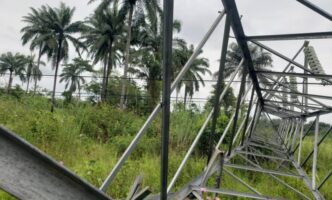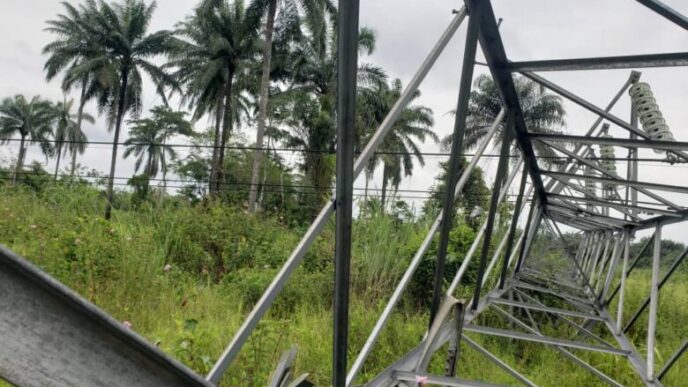BY WALE BAKARE
In recent years, the rapid advancement of technology has been transforming economies and societies worldwide. Among these technological advancements, disruptive innovations, particularly in artificial intelligence (AI), have emerged as pivotal forces shaping various sectors, including healthcare, finance, education, and agriculture. In Nigeria, a nation rich in diversity and potential, the impact of these innovations is both profound and multifaceted. The progress made in AI and disruptive innovations in Nigeria presents opportunities that can lead to significant development, but also challenges that must be addressed to fully harness their potential.
Disruptive innovations are technologies or processes that significantly alter traditional ways of doing things. They often create new markets and value networks, displacing established market leaders and challenging existing norms. AI, as a subset of these innovations, refers to the simulation of human intelligence in machines programmed to think and learn like humans. This encompasses machine learning, natural language processing, robotics, and computer vision, among other technologies. The importance of these innovations is increasingly recognised by various stakeholders in Nigeria, including the government, private sector, and academic institutions.
The integration of disruptive innovations and AI offers a promising path toward achieving sustainable development goals in Nigeria. As the nation grapples with various socio-economic challenges, the need for innovative solutions becomes even more pressing. The government has shown a willingness to adopt these technologies, fostering an environment conducive to growth and innovation. AI-related initiatives and research are gaining traction, marking a significant shift in how technology can address local challenges.
Advertisement
Nigeria’s tech ecosystem has seen remarkable growth over the past decade, with cities like Lagos, Abuja, Kano, and Port Harcourt emerging as vibrant tech hubs. This growth has attracted significant investment in startups and technology-driven solutions, transforming the landscape of entrepreneurship. The Nigerian Startup Act of 2022 highlights the government’s commitment to fostering innovation, providing a legal framework to support startups and facilitate their growth. This initiative has created an ecosystem that encourages collaboration between various stakeholders in the tech space.
Nigerian universities and research institutions are increasingly engaging in AI research, reflecting a growing interest in developing local solutions. The establishment of research centres, such as the National Centre for Artificial Intelligence and Robotics and the Data Science Nigeria, signifies a commitment to fostering a new generation of data scientists and AI specialists. These institutions are equipped to tackle local challenges, ensuring that innovations are relevant and beneficial to the Nigerian context. This investment in human capital is crucial for the long-term sustainability of AI development in the country.
AI and disruptive innovations are finding applications across various sectors in Nigeria. The agricultural sector is benefitting from AI technologies, such as precision farming and crop monitoring, which help farmers optimise yield and manage resources effectively.
Advertisement
Moreover, the fintech industry in Nigeria is leveraging AI to enhance financial services, improve credit scoring, and mitigate fraud. Companies like Paystack and Flutterwave have transformed payment processing, making it more accessible to businesses and consumers alike. AI-driven credit scoring platforms like CredPal are democratising access to loans, ensuring that even those without traditional credit histories can secure financing. In education, AI is being embraced to enhance learning experiences, with edtech startups like Andela and Decagon training the next generation of software developers and data scientists.
The Nigerian government has initiated various programs to promote the adoption of AI and disruptive technologies. The National Digital Economy Policy and Strategy and the National AI Research Grant Scheme aim to position Nigeria as a global digital economy powerhouse. Collaborations with international organisations are underway to develop frameworks and policies that support AI innovation while ensuring ethical considerations and data protection. These initiatives reflect a proactive approach to creating an environment that nurtures technological advancement.
The integration of AI and disruptive innovations presents substantial economic opportunities for Nigeria. By adopting these technologies, Nigeria can enhance productivity across various sectors, stimulate job creation, and drive economic diversification. The McKinsey Global Institute estimates that AI could contribute significantly to Africa’s GDP by 2030, emphasising the transformative potential of these technologies. This potential for economic growth is particularly critical for a country like Nigeria, which is striving to diversify its economy beyond oil.
With over 60% of Nigeria’s population under the age of 25, there is a unique opportunity to harness the potential of young minds in technology and innovation. Investing in education and training programs focused on AI can empower the youth, equipping them with the skills needed to thrive in a technology-driven economy. By fostering a culture of innovation among the younger generation, Nigeria can ensure a sustainable pipeline of talent that drives economic growth and development.
Advertisement
However, despite the significant progress made, Nigeria still faces challenges that must be addressed. Infrastructure deficiencies remain a major hurdle, with the lack of reliable electricity, internet connectivity, and digital infrastructure hindering the widespread adoption of AI and disruptive technologies. Addressing these issues is crucial to creating an enabling environment for innovation to flourish and ensuring that technological advancements benefit all Nigerians.
Access to funding is another significant barrier for many startups and entrepreneurs in Nigeria. While there has been an increase in venture capital investments, many innovative ideas struggle to secure the necessary funding to scale. Establishing robust funding mechanisms and support systems for startups is vital for fostering innovation and ensuring that promising ideas can develop into sustainable businesses. Moreover, bridging the skills gap in the tech industry is essential for the successful implementation of AI and disruptive technologies.
As AI continues to evolve, ethical considerations surrounding its use become increasingly important. Issues such as data privacy, algorithmic bias, and accountability raise concerns that need to be addressed through comprehensive regulatory frameworks. The Nigerian government must work closely with stakeholders to develop policies that promote ethical AI practices while fostering innovation. Overcoming resistance to change is also crucial, as the adoption of disruptive innovations often faces pushback from established industries and traditional practices.
The journey toward harnessing the potential of disruptive innovations and AI in Nigeria is well underway. By addressing infrastructure deficiencies, fostering a skilled workforce, and creating supportive policies, Nigeria can unlock the transformative power of AI and disruptive technologies. Embracing innovation will not only drive economic growth but also enhance the quality of life for its citizens. With a commitment to leveraging these technologies for sustainable development, Nigeria can carve out a prominent place in the global digital economy.
Advertisement
By capitalising on the opportunities presented by AI and disruptive innovations, Nigeria can build a future that is not only technologically advanced but also equitable and prosperous for all its citizens. The path forward is filled with potential, and with the right strategies and investments, Nigeria can emerge as a leader in the African tech landscape, paving the way for a brighter future for its people.
Wale Bakare is a digital rights and digital inclusion advocate, co-founder/director of partnership and sustainability, Webfala Digital Skills for All Initiative
Advertisement
Views expressed by contributors are strictly personal and not of TheCable.
Add a comment









